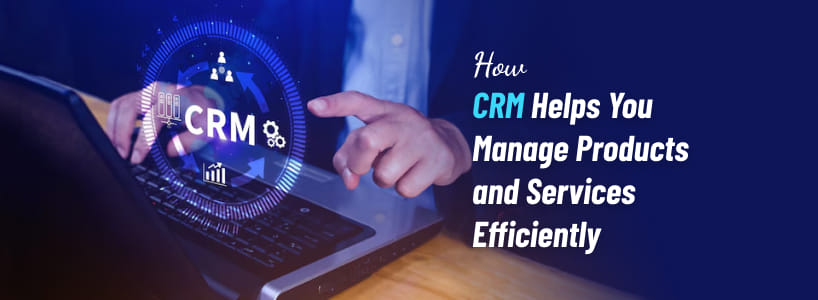How CRM Helps You Manage Products and Services Efficiently

In todays competitive business landscape, managing your products and services efficiently is crucial for sustained growth. Customer Relationship Management (CRM) systems are no longer just tools for sales and supportthey have evolved into comprehensive platforms that streamline product and service management as well. Whether you're a small business or an enterprise, integrating CRM into your operations can significantly improve productivity, customer satisfaction, and revenue.
1. Centralized Product Information
A modern CRM allows you to maintain a centralized database of all your products and services. This makes it easier for your sales, marketing, and support teams to access accurate information in real time. You can categorize offerings, update descriptions, add pricing, and track inventoryall from one platform. This reduces manual errors and ensures consistency across departments.
2. Improved Customer Insights
By connecting product and service data with customer interaction histories, CRM software provides valuable insights into what your customers want. For example, if a customer frequently inquires about a specific service package, the CRM can alert your team to upsell or cross-sell related offerings. These insights help tailor your offerings to meet customer needs more precisely.
3. Streamlined Sales and Service Processes
CRM systems automate and organize key workflows such as lead tracking, order management, and service ticketing. This ensures that every product or service request follows a structured process, reducing delays and improving response times. Automated alerts and task assignments also help teams stay on top of their responsibilities.
4. Data-Driven Decision Making
With integrated analytics, CRMs enable you to track product performance, service efficiency, and customer satisfaction levels. You can generate reports on the best-selling products, most requested services, or even customer complaints. These data points guide strategic decisions like product enhancements or service expansions.
5. Personalized Customer Experience
One of the most impactful benefits of CRM is its ability to support personalization. Based on customer data, your business can offer product recommendations, send personalized offers, and provide proactive serviceleading to higher engagement and loyalty.
6. Seamless Integration with Other Tools
Most CRM platforms integrate with inventory systems, billing software, marketing tools, and e-commerce platforms. This interconnectedness ensures that product and service information flows smoothly across your tech ecosystem, improving overall efficiency.
Final Thoughts
By using a CRM to manage your products and services, you're not just organizing datayoure empowering your business to deliver better, faster, and more personalized experiences to your customers.
To explore CRM tools that suit your business model, check out the best CRM software for small businesses or understand how CRM helps with customer retention.
Add a Comment
Your email address will not be published. Required fields are marked *
Categories
Popular Posts
![Customer, Lead, or Deal? Understanding CRM Sections for Smarter Sales [thumb]](https://blogimages.weblink.in/customer-lead-or-deal-understanding-crm-sections-for-smarter-sales-350x128.jpg)
Customer, Lead, or Deal? Understanding CRM Sections for Smarter Sales
![How EduAutomate Brings Real-Time Visibility to All Admin Operations? [thumb]](https://blogimages.weblink.in/how-eduautomate-brings-real-time-visibility-to-all-admin-operations-350x128.jpg)
How EduAutomate Brings Real-Time Visibility to All Admin Operations?
![How CRM Vendor Management Enhances Your Procurement Process [thumb]](https://blogimages.weblink.in/how-crm-vendor-management-enhances-your-procurement-process-350x128.jpg)